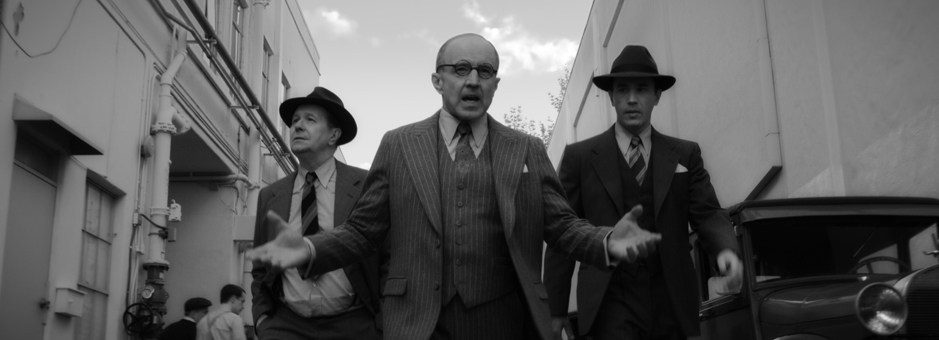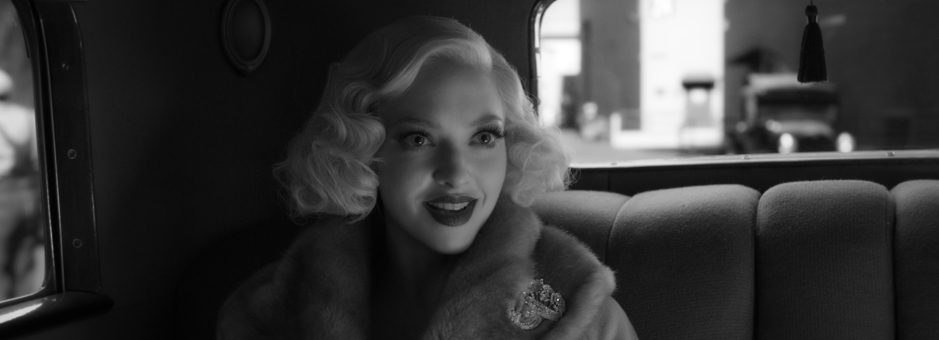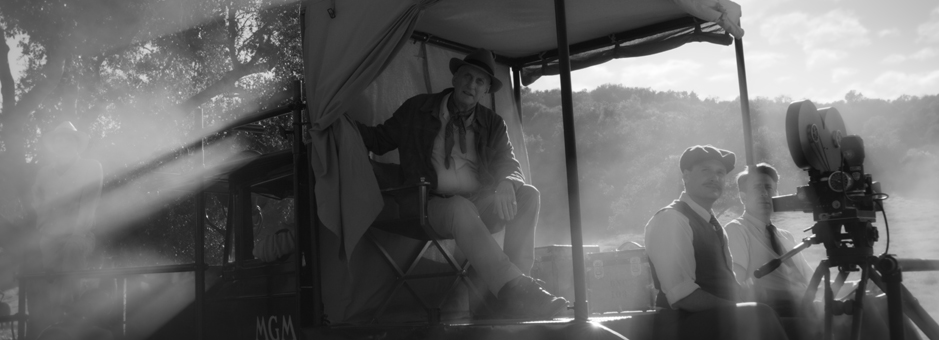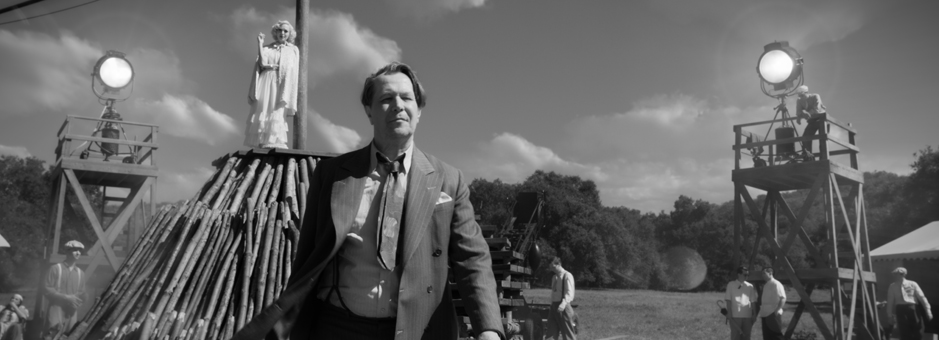Case Studies
Recreating 1930s Hollywood for ‘Mank’, the new Netflix film from David Fincher
Mank is the highly anticipated Netflix biopic directed by David Fincher. The movie is told through the eyes of alcoholic Hollywood screenwriter, Herman J. Mankiewicz, as he battles with personal demons to finish the screenplay for Orson Welles’ renowned Citizen Kane.
While Fincher and his team have worked with FilmLight’s Baselight colour grading system since the 2008 film The Curious Case of Benjamin Button and the Netflix TV series House of Cards, it was with Netflix’s Mindhunter that the director established his own in-house DI facility in Hollywood. Colourist Eric Weidt was brought on to lead colour development on the facility’s Baselight X system. Weidt had previously developed custom film emulation profiles for traditional film photographers, and brought his considerable experience in post-production for fashion stills and films to the grading suite.
Entirely shot in black and white, Mank has a 1930s Hollywood feel. Many tests were done before shooting – cameras, lenses, even light bulbs – before Eric developed the HDR, SDR and day-for-night LUTs alongside the project’s DoP Erik Messerschmidt. Fincher wanted to re-create certain period elements in post, for example “black blooming” in the shadows.
“In testing, we developed the 6k look in Baselight, and then we had Fotokem make a shader version,” Weidt explained. “So the period feel was even baked into the dailies”.
Fincher and Messerschmidt went with a monochrome camera because of its sensitivity to light. However, that meant that in the grading suite, Eric Weidt had no chromatic information to cheat with.“I think I wore out the luminance key knobs,” said Weidt. “Erik [Messerschmidt] made beautiful choices, shooting with an orange filter for darker skies, for example – and we had whole segments shot day for night that were a real pleasure to grade. The latter had virtually no grain after grading until we dialed some back in”.
In this case, Eric made use of Baselight’s procedural Add Grain feature so that the effect could be keyframed throughout each shot, aiming for the non-linearity of optical effects. Weidt played a pivotal role in recreating other elements of an authentic 1930s look in the grading suite too.
“David Fincher really wanted period references – black blooms, white blooms, edge softening, ‘optical fades’,” explained Eric. “They did some aperture fades in-camera, but otherwise asked me to reproduce the way light gets boosted and contrasted during the dissolves to and from black.”
“Personally, I love black and white – dodging and burning – and it’s incredible how much we can do that with 14 stops of latitude.”
One of the other challenges encountered by Eric was the smoke that had been created to provide atmosphere on set. “The absence of colour meant devising ever more clever ways to balance the smoke – such as asking for any existing VFX alpha channels to be passed along. But beyond that it involved a lot of tracking,” explained Weidt. “Interestingly though, we brought a lot of smoke back after I’d already tamed it.”
Eric used a plethora of Baselight tools to achieve the look – such as Base Grade, Paint, Texture Equaliser, and Add Grain – but he also relied on Baselight’s Colour Space Journey, Cursors View, Gallery, and powerful Formats functionality.
He collaborated a lot with the VFX department too, mostly because so many requests can now fall into either domain. “Baselight has practically become a compositing tool in its own right, and that brings huge advantages in terms of flexibility. Changes become a matter of clicks,” said Weidt. “But some tasks can start out small and grow in scope – and some shots also require interventions by different people. So we got together regularly to re-visit tasks, or the order of operations.”
Mank is a passion project for David Fincher, as the screenplay was written by his late father, Jack Fincher. He has attempted to make the film for many years, and the release of Mank coincides with the 79th anniversary of the theatrical opening of Citizen Kane.
Mank is now streaming on Netflix.
“Erik [Messerschmidt] made beautiful choices, shooting with an orange filter for darker skies, for example – and we had whole segments shot day for night that were a real pleasure to grade.”
Download








